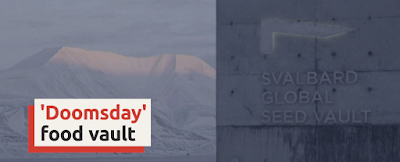This post and the other in this series are taken from an article I found online with the same name as the "Subject Line". They were written by Tove Danovich and posted on 9/16/15. The entire original post can be found here: http://bit.ly/2T8oqu0
----------------------------------------------------------------------------------------------------
Though preppers are very active behind screen names on the Internet — on groups like the American Preppers Network or websites like the Survival Blog — they stay under the radar in real life. It's not because they think their hobby is strange, but because when the end of the world comes, they don't want the entire starving neighborhood to know that their house is the one full of potable water, heat, and enough food to last a full calendar year. "The first rule of prep club is you don't talk about prep club," says Lisa Bedford, a mother of two teenagers and a prepper also known as the Survival Mom. As a result, there's not much in the way of hands-on education. "The community is online because people want to be very careful and cautious about who they talk to," Bedford explains. Bedford says that she has cultivated a small group of neighboring preppers who she could rely on if SHTF ("shit hits the fan," naturally). "But I have no idea how much they actually have."
Overall it seems like the secrecy is directed toward non-preppers: No one wants to get themselves into an ant-and-grasshopper situation where they're sharing supplies with the non-prepared deadweights of the neighborhood. Within the prepper community, however, there are websites like Prepper Dating and Survivalist Singles (just because it's the end of the world doesn't mean you have to be alone). Other forums facilitate people who want to either connect with neighbors or actually gather enough strangers to fill a home with like-minded survivalists.
Survivalists come in all shapes and sizes. Like any subculture, the people involved fit somewhere on a spectrum of intensity. On the one hand, you might have someone like Bedford, who began prepping as a backup plan if her family lost their primary source of income. On the other end are the types of people who build underground bunkers and whose security plans look like a mini National Guard.
But while outsiders familiar with prepping have a tendency to think survivalists have a streak of insanity, it's actually not all that different from the practice of homesteading. "They call it something different and do it a different way, but the end goal is the same," says Henry. He specifically references the local food movement where many people have taken to knowing their farmer or growing their own produce because they don't feel like they can rely on the government, big food corporations, or other overseers to adequately check the quality of what they're eating. "A large part of both movements is the concept of control," Bedford says. This is one reason why interest in prepping seems to increase after natural disasters, economic crises, or another traumatic event. It allows people to feel like, at least next time, they'll be prepared.
Until we meet again,
e a lake

No comments:
Post a Comment